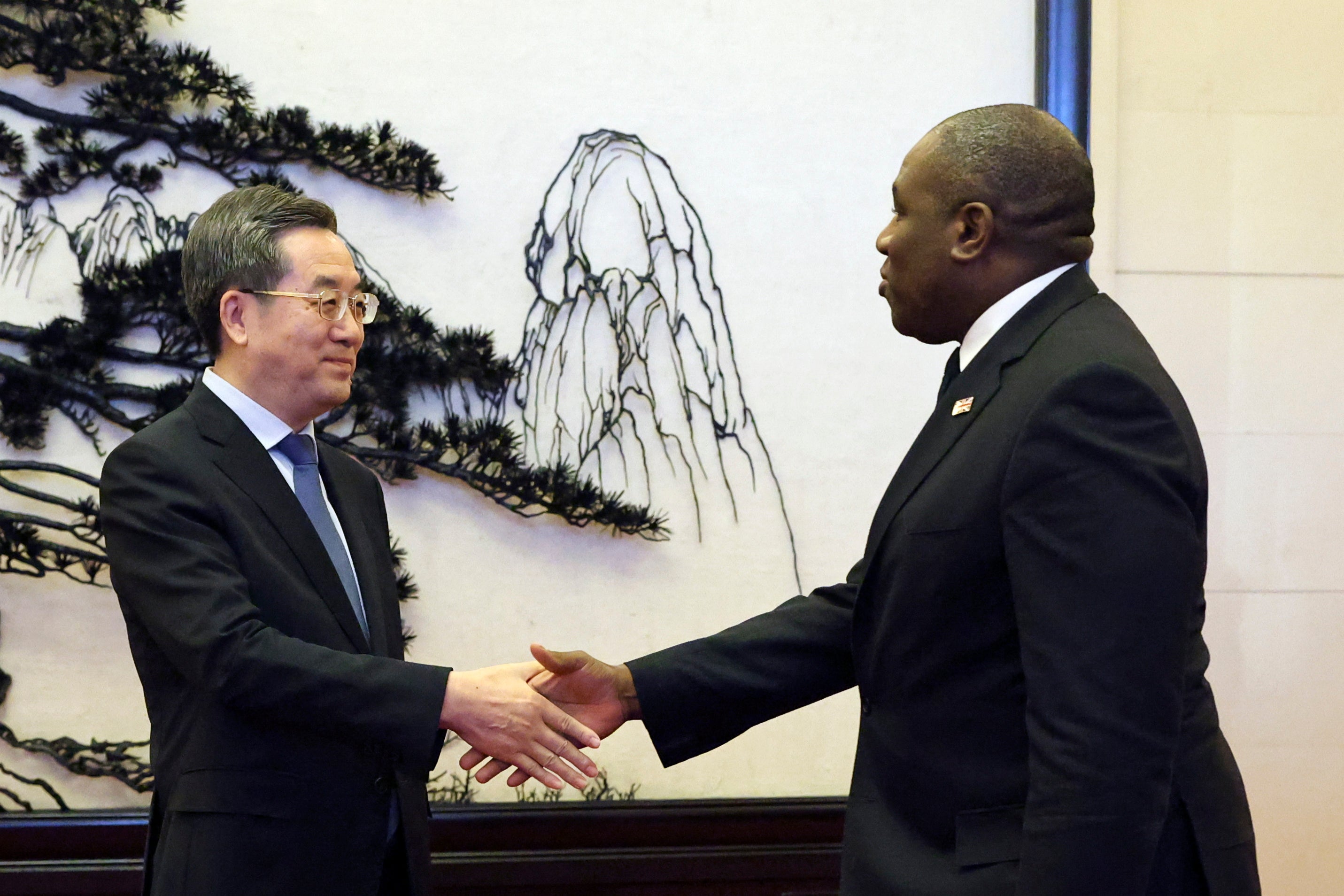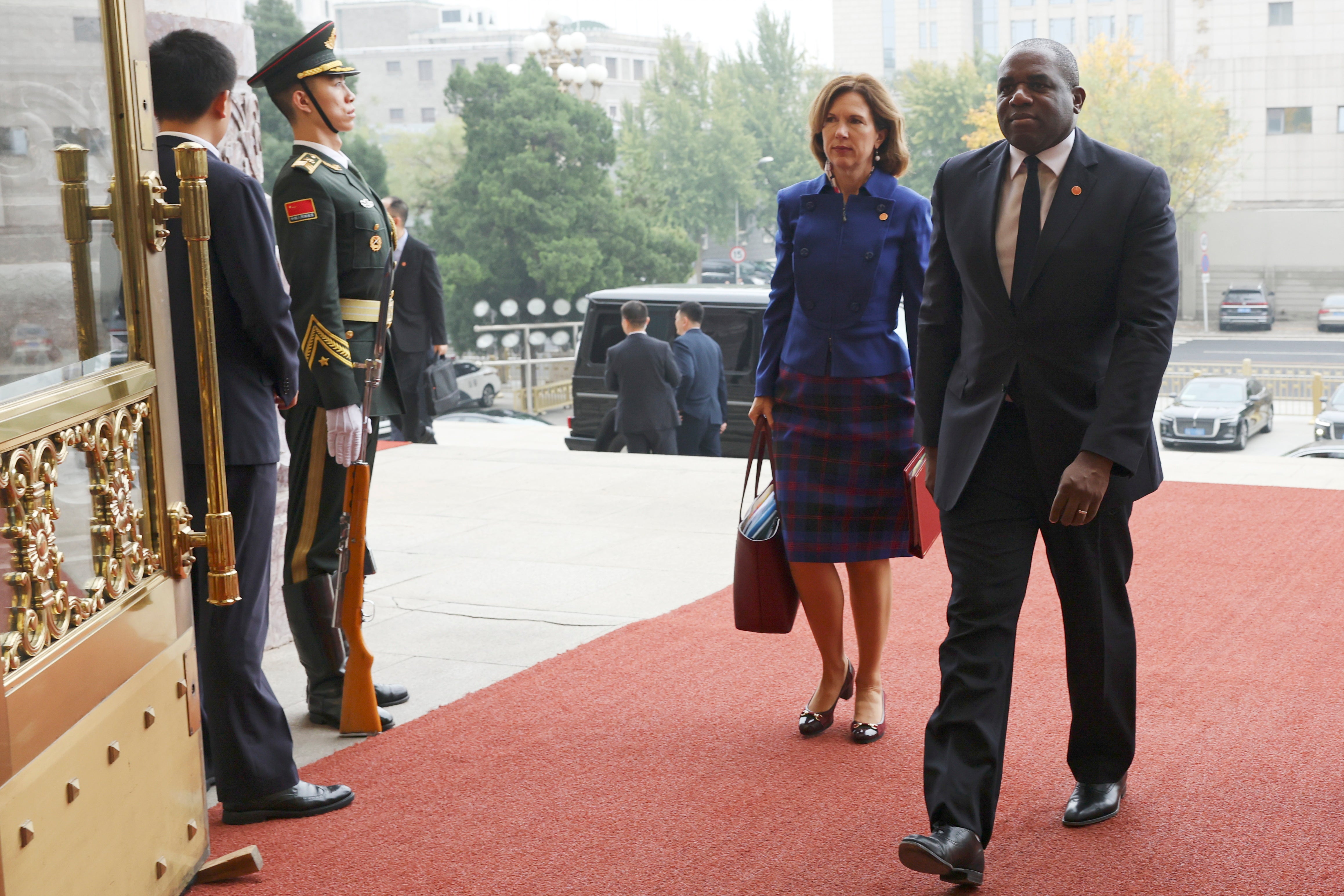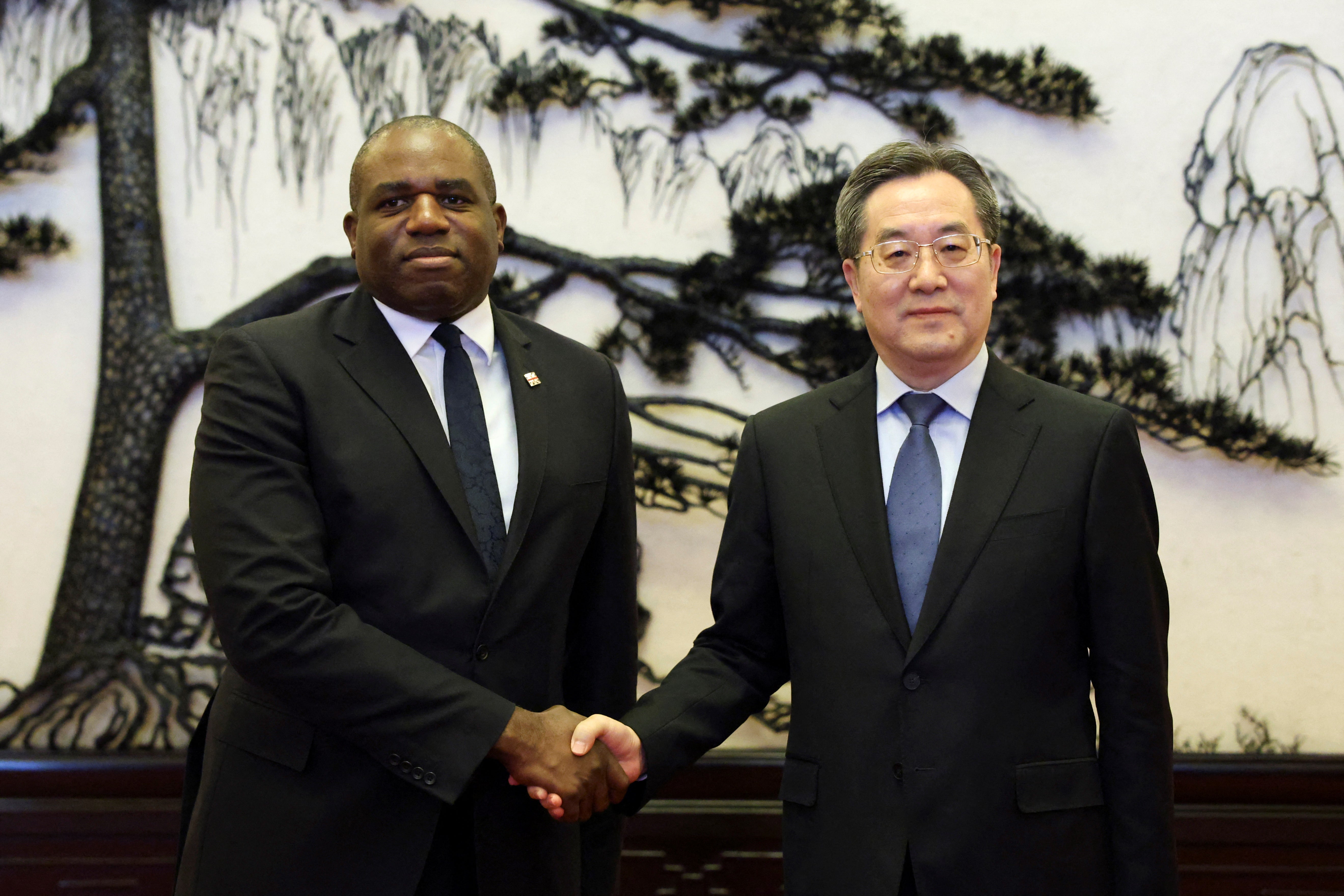David Lammy vows to challenge China over support for Putin during ‘necessary’ visit
Foreign secretary will call on China to stop its economic support for Russia’s war in Ukraine during a trip designed to mend ties

Foreign secretary David Lammy arrived in China on Friday for two days of what he called “serious” and “necessary” diplomatic engagements, the first visit to Beijing by a minister from Keir Starmer’s government.
Mr Lammy is set to meet his Chinese counterpart, foreign minister Wang Yi, on Friday before he travels to Shanghai for engagements with British business leaders with operations there.
The foreign office said Mr Lammy’s visit will address a range of issues between the two countries, including the foreign policy “challenges” posed by Russia’s invasion of Ukraine, trade, as well as the climate crisis.
“Engagement with China is pragmatic and necessary to support UK and global interests,” Mr Lammy said ahead of his arrival in China.
“From stopping Russia’s illegal invasion of Ukraine, to supporting a global green transition, we must speak often and candidly across both areas of contention as well as areas for cooperation in the UK’s national interest.”
The British government acknowledged the differences between the two countries, including “democratic values and freedoms, Hong Kong and support for Russia’s illegal war in Ukraine”.

But a statement insisted that there were also key shared interests, including a “global green energy transition, and deep economic links, with China including Hong Kong the UK’s fourth largest trading partner”.
Chinese foreign ministry spokesperson Mao Ning said Mr Lammy is visiting at the invitation of the Xi Jinping government and the two sides will have an “in-depth discussion” of matter raised during a phone call between Sir Keir and Mr Xi in August.
That was the first call between Mr Xi and a British prime minister since a 2022 call with Boris Johnson.
During the call, Sir Keir and Mr Xi “agreed on the need for a stable and consistent UK-China relationship” after the landslide election victory for Labour sparked cautious optimism of a reset in ties with China.

However, the visit is not expected to yield major diplomatic agreements or intended to mark a reset in relations that have soured over the years amid allegations of espionage and China’s crackdown on pro-democracy activists in Hong Kong, a former British colony.
Last week, Sir Keir said the release of British citizen and pro-democracy activist Jimmy Lai is a “priority” as he faces a lengthy trial on charged on 2020 National Security Law.
Human rights groups demanded that Mr Lammy press the Chinese government over its crackdowns on dissent in Hong Kong, Xinjiang and Tibet.
Despite these differences, the two countries have sought to reset ties as they remain major trading partners and permanent members of the UN Security Council. China is Britain’s sixth-largest trading partner, accounting for 5 per cent of total trade, British government figures show.
The visit is seen as a part of Mr Lammy’s efforts to “set the direction” of London’s relationship with Beijing as he has been tasked to forge a detailed policy on China following July’s snap election.
Setting out his foreign policy vision in an essay in April, Mr Lammy said London’s policy had “oscillated wildly over the past 14 years” of Tory rule, vowing to “adopt a more consistent strategy.”
The foreign office has since launched a cross-Whitehall audit of the UK’s ties with China.
Join our commenting forum
Join thought-provoking conversations, follow other Independent readers and see their replies
Comments
Bookmark popover
Removed from bookmarks